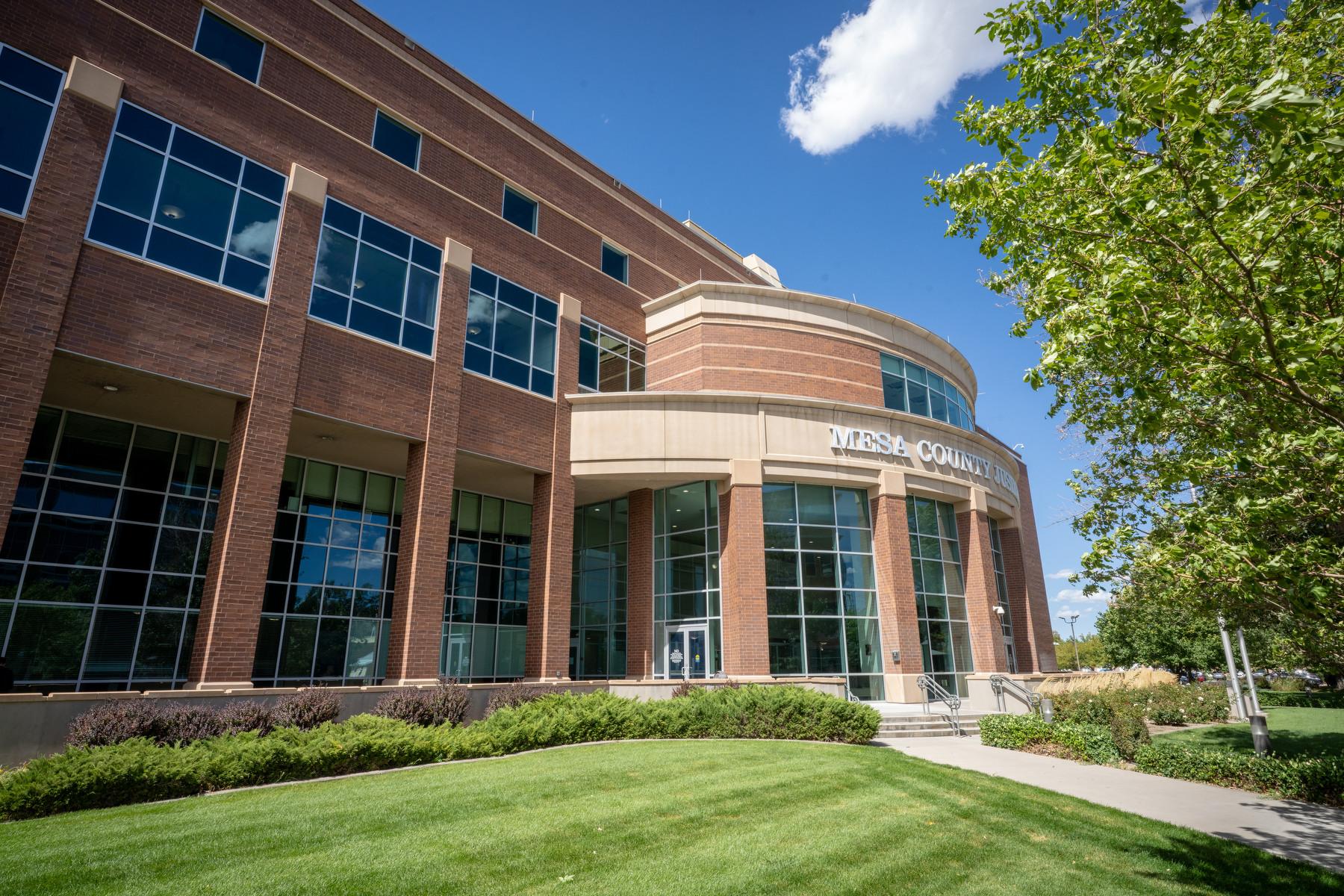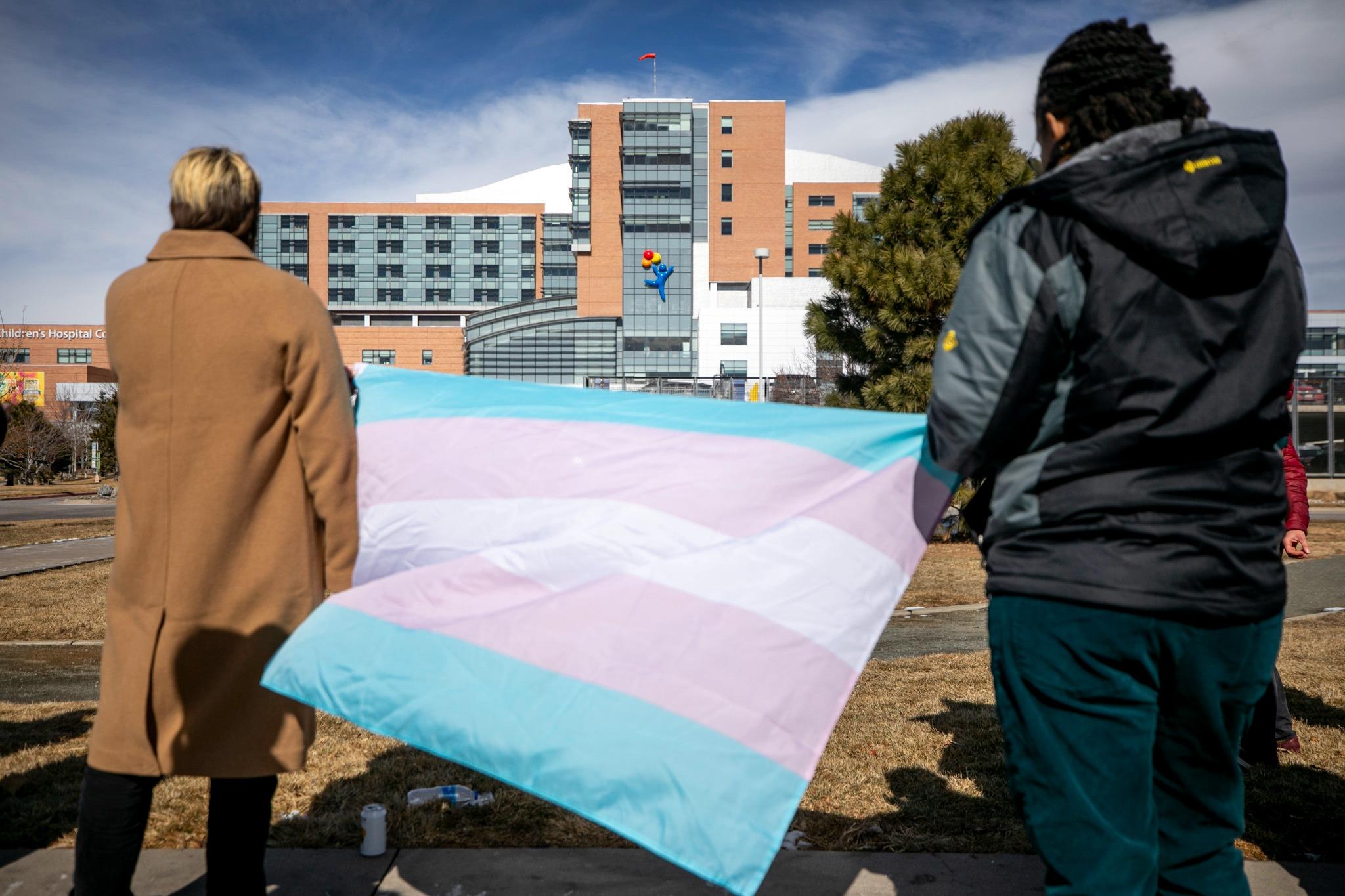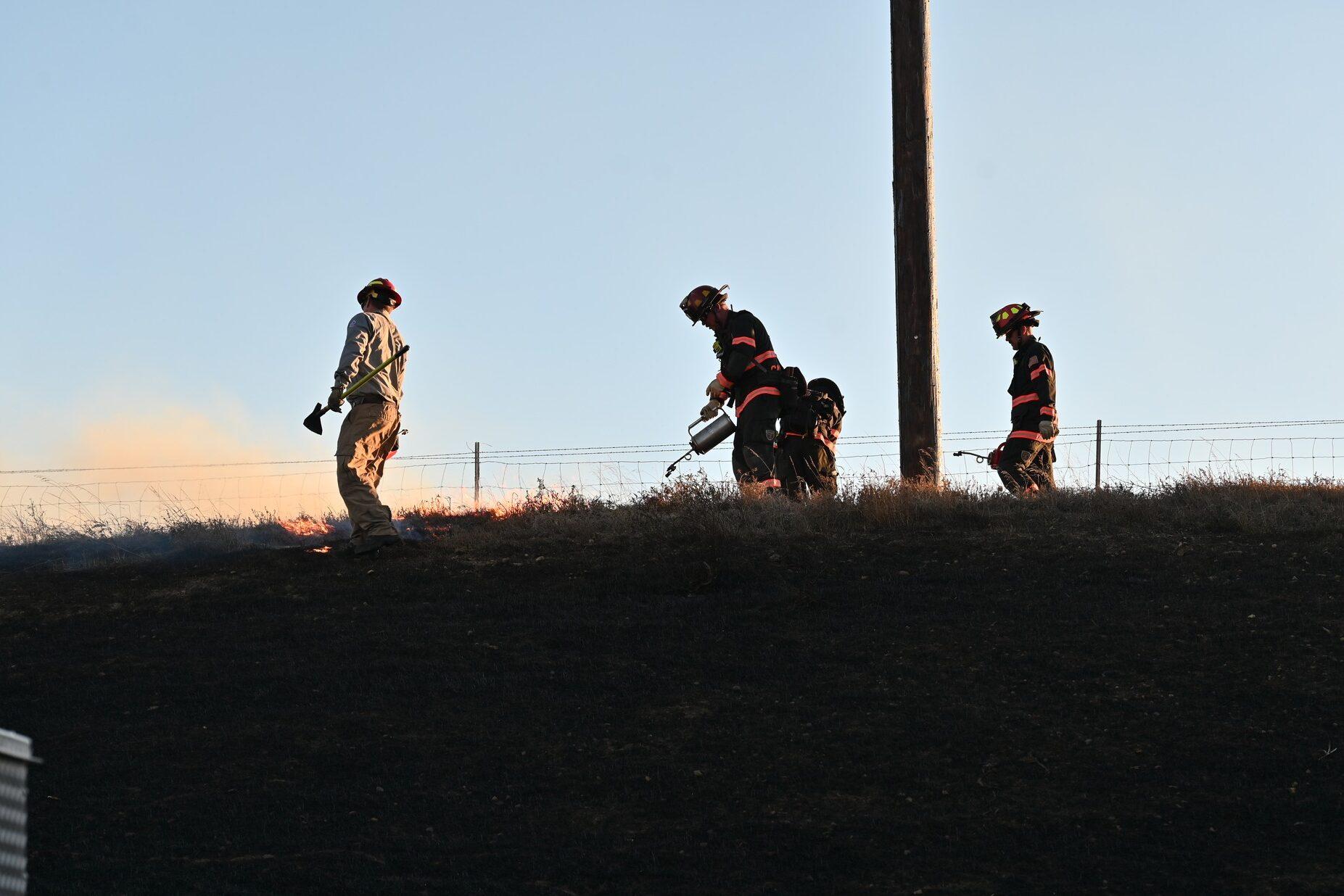Looking out at the Cresson mine expansion, between Victor and Cripple Creek. At peak construction the mine will employ more than 1,000 people. [CPR/BMarkus]
Colorado’s largest gold mine continues to expand, despite a dramatic drop in the price of gold over the last two years.
In between the two small mountain towns of Cripple Creek and Victor, an hour’s drive from Colorado Springs, bulldozers are busy crafting an immense rock wall across a mountain valley.
The Cresson mine expansion looks like a dam for a reservoir, but instead of water, it will hold a virtual mountain of dirt, filled with miniscule amounts of gold.
“This is not your great-grandfather’s gold mine,” said Ray DuBois, Vice President and General Manager of AngloGold Ashanti, “however we are mining through your great grandfather’s gold mine.”
This was one of the world’s great gold deposits a hundred years ago, but all the big nuggets were taken by miners with pickaxes. Now, the leftover rock is blasted apart, trucked into valleys like this one, and sprayed with sodium cyanide.
“It actually dissolves the gold from the rock, and then the gold goes into solution,” said DuBois, “and it just percolates down through the rock.”
Then the solution is pumped out, and the gold is extracted and shipped off to market. This $585 million expansion has not stopped, even though gold prices have dropped.
“No, but that could happen, and it has happened with other operations,” said DuBois, “but fortunately we have a very good workforce here that’s very cost-conscious and very dedicated to keeping this mine open.”
DuBois says he hasn’t had to stop expanding, partly because gold prices are still higher than when his company planned the project back in 2010.
It’s mainly higher cost mines, which made sense when gold was closer to its peak price, that have been forced to close.
“If your cost of extraction is really high and the gold prices are going south, you’re going to be the first one to shut down,” said Campbell Harvey, a finance professor at Duke University.
He argues gold prices are still abnormally high and that demand from China and India could also be softening. He claims that could force the Cresson Mine to stop expanding, if not scale back even more.
That’d be bad news for the small historic mining town of nearby Victor.
“Cripple Creek has gambling, Aspen and Vail have ski resorts, Victor has the mine,” said Victor city councilman Michael Wallace. “They are a huge part of our identity.”
The Cresson mine is one of the largest employers in the district and a huge economic driver, even though it’ll have more than 1,000 workers during the peak of construction, which is already putting pressure on the town.
“Well, we just don’t have a place to put them,” said Wallace. “What it’ll do, of course, is drive up the rent costs and drive up the housing costs.”
He says most people in the district welcome the mine’s expansion. Others are more conflicted. When Steve Johnson retired to Cripple Creek in 2005, he didn’t realize he’d be close enough to see the mine’s expansion from his front porch.
“I recognize that they own the land, and they can pretty much do whatever they want with it,” Johnson said. “If I don’t want them to do it, it’s up to me to get a bunch of money and buy it from them, and turn it back into what it used to be.”
He can already hear construction noise off in the distance; but he recognizes this project is good for the local economy.
“Right now I’m trying to remain philosophical about it,” he said.
Back at the mine, DuBois and his bosses at the South African-based AngloGold Ashanti keep a watchful eye on gold prices as they build out the mine. The company’s share price has dropped more than 70% in less than two years. DuBois said he’s been forced to cut costs, even instituting a no-idling policy for trucks and bulldozers.
“There’s nothing like falling commodity prices, especially the commodity that you sell, that you produce, to [make you] look deep at yourself and see how you can improve things,” DuBois said.








